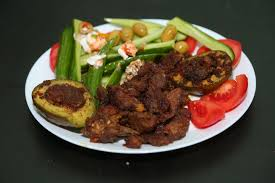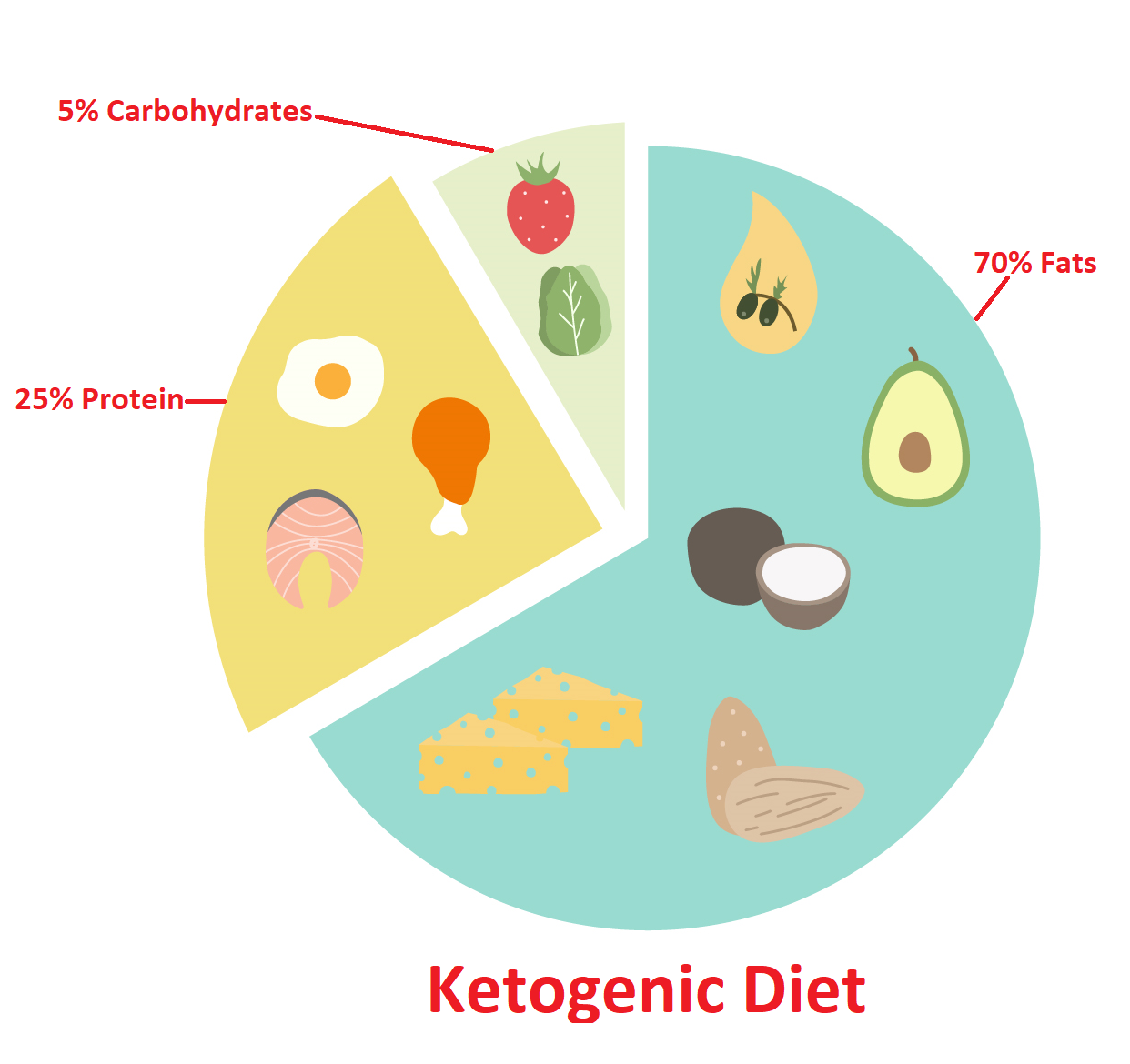What is the Ketogenic Diet? Keto Diet Explained:Pros & Cons

The ketogenic diet, also known as a keto diet, is very high fat and low carbohydrate diet prepared with the aim to force the body to use fat for energy instead of glucose. Studies show that the ketogenic diet is one of the most effective ways to burn fat, weight loss, and enhance overall health. Professionals also prescribe the diet for controlling various diseases.
On the other hand, nutrition experts have a different way of thinking that this diet is tough to maintain for most people. You must know the pros and cons of a keto diet before you give it a try.
History of the Ketogenic Diet
The fasting diets were used to treat epilepsy and other seizure diseases since 500 B.C. The ketogenic diet was designed in the 1920s after taking inspiration from these fasting diets. The ketogenic diet got less interest in the 1990s after the introduction of anti-epileptic medicines (AEDs). But the diet became popular again to treat some forms of epilepsy disease, which did not respond well to the drugs. The ketogenic diet played a significant role in these types of diseases.
In recent times, the ketogenic diet is also used to treat many other diseases, including blood pressure, headache, diabetes, Parkinson’s disease, Alzheimer’s disease, neurotrauma, cancer, mitochondrial disorders, stroke, autism, migraines, brain trauma, and psychiatric disorders.
Various studies are going on to find the reasons why a ketogenic diet has a positive effect on these diseases. Some reports suggest that a keto diet helps to normalize some specific metabolism, which causes the disorders.
Also, the ketogenic diet gained popularity among sportspersons and those who want to lose weight. This idea came from the fact that those patients who were on a keto diet lost weight quickly.
 There is a long list of celebrities and athletes who claim that a ketogenic diet has helped them in weight loss, and improved sports performance.
There is a long list of celebrities and athletes who claim that a ketogenic diet has helped them in weight loss, and improved sports performance.
The media coverage worldwide has also given a boost to this diet’s popularity.
Related: Foods I can Eat on a Keto Diet
Keto Diet Explained by Experts
The ketogenic diet strictly limits the carbohydrates to force the body to use fat as the primary energy source. The vegetables and fruits are also restricted in this diet, which limits the intake of fiber and nutrients. According to the experts, this can promote long-term weight gain and can lead to an unhealthy body.
Summary
Ketogenic diet is a low carb, moderate protein, and high-fat diet that can help lower blood sugar & insulin levels. It helps the body to use stored fat as an energy source.
How a Ketogenic Diet Works?
A ketogenic diet has a minimal intake of carbohydrates, high healthy fats, and a moderate amount of protein. There are many low- carbs diets, but not all of them are considered as a kito diet. There are three ways for a low-carb diet, and one of them is regarded as a true keto diet.
In ketogenic diet, you cut off carb intake drastically and replace them with fat sources. This drastic cut off of carbs puts the body in a metabolic state known as ketosis.
While on a keto diet, the body goes into ketosis stage, which results in the burning of fat as a primary energy source. It results in making the body more efficient for burning the stored fat for energy demands. This ketosis diet also helps fat turn into ketones in the liver to supply energy to the brain; as a result, it produces ketones, therefore, giving this diet its name “keto.”
There are many types of ketogenic diets, but in a true keto diet, you consume nearly 70% of healthy fats, 5-10% of carbs, and the rest protein.

There are many types of keto diets, such as Standard, Cyclical, Targeted and high protein ketogenic diet. All these variations have different percentages of carb intake.
Mostly used ketogenic diet foods include fatty fish, nuts, meat, cheese, and healthy oils. Some experts advise excluding oils that are high in polyunsaturated omega-6 such as corn, cottonseed, soy, and safflower as they are less healthy compared to other keto-friendly foods.
Coconut oil and MCT oil are high in medium-chain triglycerides fats and can be turned into ketones easily by the body, making them ideal for a keto diet. To follow a true ketogenic diet, you must consume foods high in monounsaturated and saturated fats with omega-3 such as cheese, hemp oil ,avocado, butter, and olive oil.
Pros and Cons of a Keto Diet
As a ketogenic diet is used from the last many decades by the medical community to treat many diseases and to reduce weight, we can trust in the research and studies being conducted from past times. People who adopt the ketogenic diet to lose weight are likely to get quick results as sudden and strict reduction of carbs can reduce overall calorie intake and reduce water weight also.
This all seems interesting, but while the body is adjusting to ketosis, you can notice some adverse effects, including weakness, headaches, and fatigue. Also, due to limited intake of veggies and fruits can lead to fiber and essential nutrition deficiency resulting in some health issues such as vitamin, mineral deficiency, and constipation. A keto diet helps to improve Triglyceride and HDL cholesterol levels (Source). Research and studies show that a it can help you lose 2.1 times more weight compared to a low-fat diet.
Ketogenic diets are used for short terms only as it becomes difficult to maintain it for a long time to eat fewer carbs, and the food people love to eat. Also, calorie-restrictive diets can backfire and result in sudden weight gain. So do not rely on the same eating plans for a very long time, keto diet basics are attractive, but you must always change your diet after a while.
PRO TIP
Do not even think of trying a this if you are a pro bodybuilder who wants to put on serious muscle mass or if you are an athlete with strength and power requirements.
Ketogenic Diet Myths answered by Experts.
As the keto diet is gaining popularity due to celebrity promotion, fitness bloggers, and media coverage, many myths are also increasing. Below are some myths debunked.
Question: Will I feel tired and dizzy all the time if I opt for a ketogenic diet?
Answer: No, the human body is so strong, and it can adapt itself to use fat to burn as a fuel. But still, in the starting phase, you might feel fatigued.
Question: How to know if I am in a ketosis stage?
Answer: You can get a test done to determine the presence of ketones. You can also use urine sticks to check the ketones levels.
Myth: A keto diet is dangerous and can lead to death.
Truth: Do not get confused with the term ketosis and ketoacidosis. In diabetic ketoacidosis, the ketones levels are very high compared to the ketosis due to the diet. If you follow the diet correctly, it can lead to some great results, also some side effects but not death.
Myth: You can eat any type of fats while on a keto diet.
Truth: Do not get confused with fatty foods with only fats and fatty foods with high amounts of carbohydrates. Some foods such as ice-cream, cakes, French fries are high in fat. But they are also high in carbs so you cannot eat all the fatty foods in a ketogenic diet.
Myth: You can eat lots of meat while on a ketogenic diet.
Truth: In the keto diet, we want our body to use fat as a primary source of fuel. Foods high in protein can disturb the body to maintain ketosis. Increasing the intake of foods high in protein can make your body burn calories from protein primarily instead of fats.
Myth: A vegetarian can’t adopt a ketogenic diet.
Truth: Though there are very limited plant-based fats compared to meat but a vegetarian can also go on a keto diet, but the food choices will be limited and difficult.
Final Thoughts
A ketogenic does help in various neurological disorders and to lose weight quickly. There are thousands of success stories that shows that a keto diet useful to lose weight, and maintain a lean body. It seems a bit difficult to adopt this diet in America. The typical American diet is rich in carbohydrate food.
Now as you know the secret of one of the best diets, now you can get awesome results with those dumbbells, smith machine, leg press, hack squat, seated leg press and yoga & meditation.
Consult a registered dietitian to make a keto-friendly diet for you if you want to try it. If you have some ongoing health problems, make sure you consult your specialist first.






